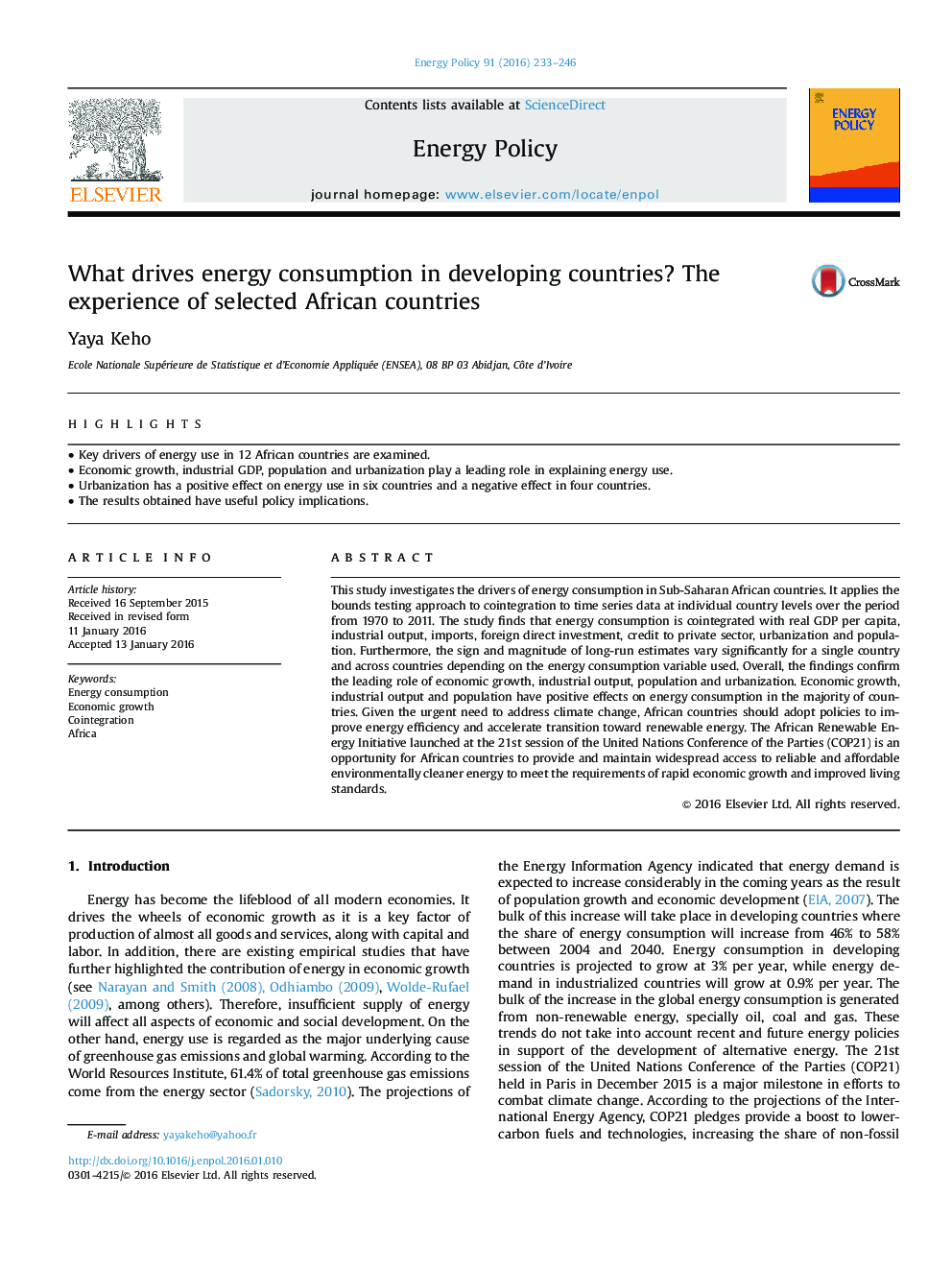| Article ID | Journal | Published Year | Pages | File Type |
|---|---|---|---|---|
| 7399521 | Energy Policy | 2016 | 14 Pages |
Abstract
This study investigates the drivers of energy consumption in Sub-Saharan African countries. It applies the bounds testing approach to cointegration to time series data at individual country levels over the period from 1970 to 2011. The study finds that energy consumption is cointegrated with real GDP per capita, industrial output, imports, foreign direct investment, credit to private sector, urbanization and population. Furthermore, the sign and magnitude of long-run estimates vary significantly for a single country and across countries depending on the energy consumption variable used. Overall, the findings confirm the leading role of economic growth, industrial output, population and urbanization. Economic growth, industrial output and population have positive effects on energy consumption in the majority of countries. Given the urgent need to address climate change, African countries should adopt policies to improve energy efficiency and accelerate transition toward renewable energy. The African Renewable Energy Initiative launched at the 21st session of the United Nations Conference of the Parties (COP21) is an opportunity for African countries to provide and maintain widespread access to reliable and affordable environmentally cleaner energy to meet the requirements of rapid economic growth and improved living standards.
Related Topics
Physical Sciences and Engineering
Energy
Energy Engineering and Power Technology
Authors
Yaya Keho,
